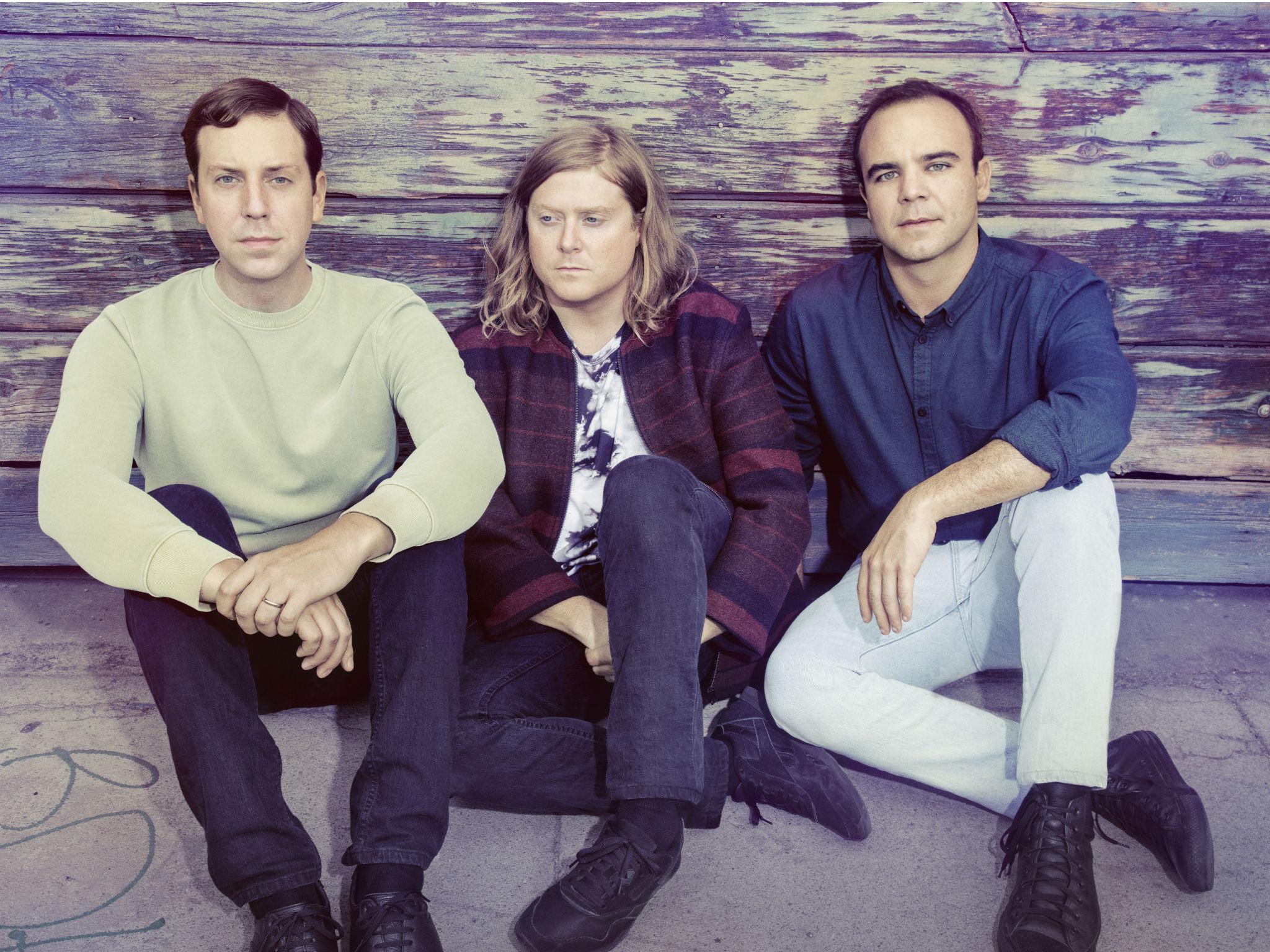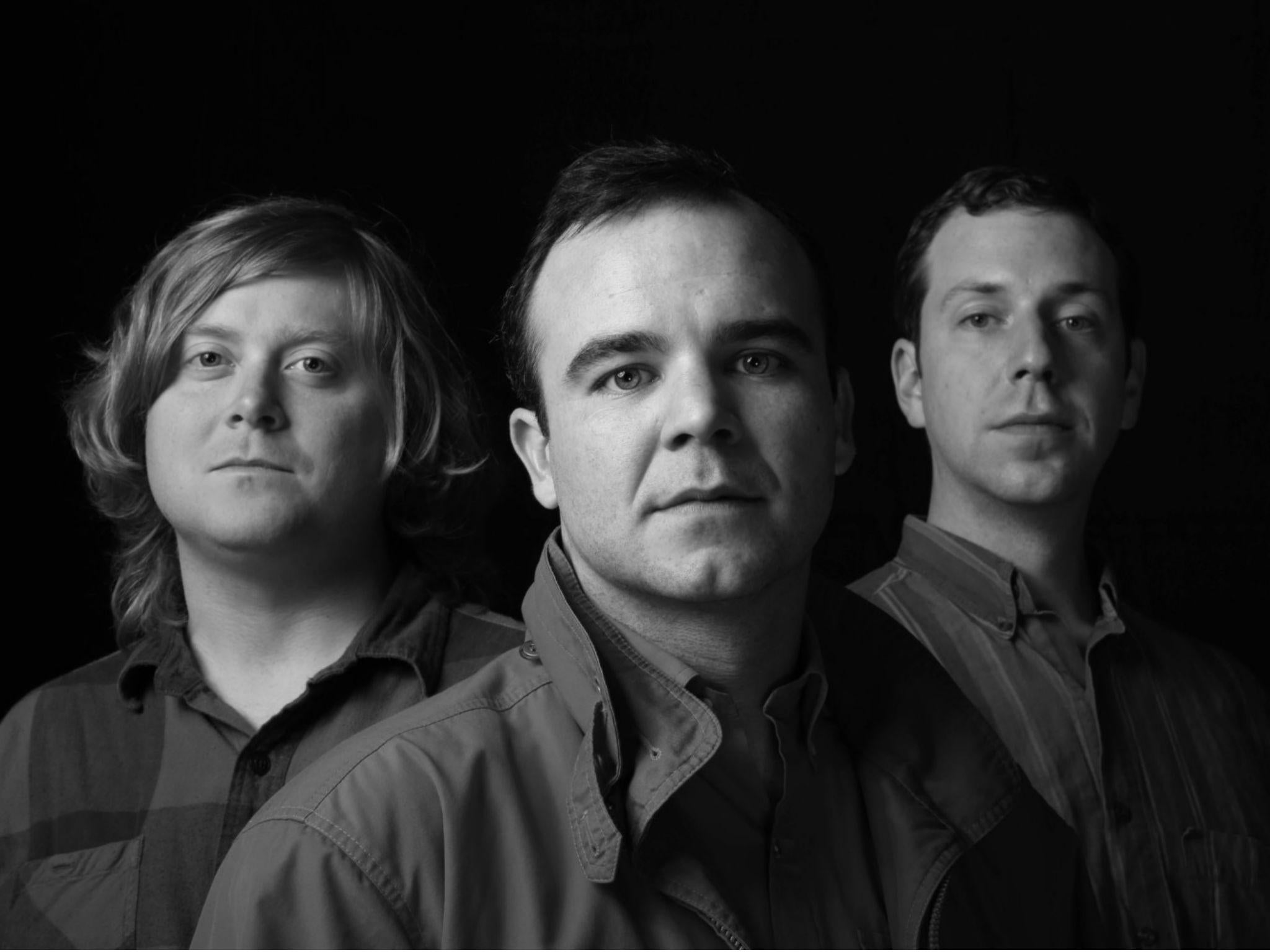Future Islands on fame after Letterman performance, new album The Far Field and exhaustion
The Baltimore trio shot to prominence after a performance on the Late Show with David Letterman went viral. Now fifth album ‘The Far Field’ sees them going beyond new expectations.

Your support helps us to tell the story
From reproductive rights to climate change to Big Tech, The Independent is on the ground when the story is developing. Whether it's investigating the financials of Elon Musk's pro-Trump PAC or producing our latest documentary, 'The A Word', which shines a light on the American women fighting for reproductive rights, we know how important it is to parse out the facts from the messaging.
At such a critical moment in US history, we need reporters on the ground. Your donation allows us to keep sending journalists to speak to both sides of the story.
The Independent is trusted by Americans across the entire political spectrum. And unlike many other quality news outlets, we choose not to lock Americans out of our reporting and analysis with paywalls. We believe quality journalism should be available to everyone, paid for by those who can afford it.
Your support makes all the difference.It’s May 2014, and Future Islands frontman Samuel T Herring is about to board a 6am flight to Barcelona. He’s running on empty. The night before in Vienna, he skips dinner, gets drunk after a show, meets up with a long-lost friend and stays up reminiscing until 4am.
Standing in line at the airport, he starts to experience a panic attack. Trying to distract himself, he fixates on a German mother and her son in the queue. “His mom was fixing his shirt and combing his hair, while he was swatting away at her. She was crying. It was like he was leaving home. I’m watching this guy like, ‘Fuck this guy! Give her a hug! I wish I could hug my mom right now!’”
“I’ve got these panic waves hitting, top of my head to my toes,” he continues. “And I just turn our tour manager and go, ‘Hey, I’m about to pass out.’ I’m stripping off my bag and taking off my coat. And then bam. I hit the ground. I immediately come to, stand back up and hit the ground again straight away.”
By 2014 all three members of Future Islands were ready to collapse. Their performance of “Seasons (Waiting For You)” on The Late Show with David Letterman exploded online, hundreds of thousands sharing footage of Herring’s signature dance moves – somewhere between a velociraptor on the prowl and Marlon Brando doing karaoke, for those who haven’t seen it.
These relative old-timers from Baltimore, who’d be touring non-stop for years with everything on their terms, were catapulted into another world. What followed isn’t a miserable tale of underdogs being ruined by the big time. In fact, new album The Far Field, the band’s fifth, is the opposite of a group caving into pressure. But bassist William Cashion admits that their entire world changed. “Everything got bigger. The stages got bigger, the crowds got bigger, the expectations got bigger.”

Since finding unexpected success, there hasn’t been a story quite like theirs – a band who’d carved their own niche suddenly being placed on a huge platform by simply doing what they always do. Overnight success doesn’t tend to happen, especially not to an art-rock group from Baltimore.
“To me, we’ve been successful for years. Since 2010,” argues Herring. “We were already living off of our art. To me, that was success.” But with 2014 album Singles, they became a different band, adding touring drummer Michael Lowry to their entourage and playing huge slots on the back of that Letterman performance. What was intended to be one year on the road soon became two. “We’re used to steady touring,” says Cashion, but 2015 saw them spending a handful of days back home before flying off to another festival, week-in, week-out. This was anything but steady.
“The road” has been a sticking point on all Future Islands records, both in a literal and metaphorical sense. Before The Far Field, the group’s relationship with life on the road changed, and the following record documents this. Standout track “Beauty Of The Road” finds Herring looking back on the time he sacrificed his love life in order to tour. Writing the latest record, he became uncomfortable with not being on the road.
“I missed it. It became a nostalgic point. I’m pretty deeply invested in my love of the road. But I don’t know if that’s because I’ve completely lost my mind,” he laughs, eyes widening. He looks to his bandmates. “That does scare me, because these guys have wonderful people in their lives and are settling down. I’m like, ‘What happened to me?!’ I’m still lost out here on these roads. I’ll fly to LA just to stay in a hotel room because that feels more at home than being at my house.”
Enjoy unlimited access to 100 million ad-free songs and podcasts with Amazon Music
Sign up now for a 4 month free trial (3 months for non-Prime members)
Enjoy unlimited access to 100 million ad-free songs and podcasts with Amazon Music
Sign up now for a 4 month free trial (3 months for non-Prime members)
A lot of those drawn to Herring’s dancing found appeal in someone putting their insecurities to one side and just going for it. Others simply found it funny. Gifs of Herring’s moves became a strange, low-key meme that threatened to forever follow the band.
But the real appeal of the frontman’s stage prowess is how much commitment he gives. You see it in the dramatic chest thumps, or when emotion overwhelms and he begins to cry – he’s all in. “Being at home and realising I’d got everything I set out to get,” he reflects. “I’d fulfilled all my goals: to be a musician. I didn’t have to do anything but make music. And if I wasn’t making music or touring, then I could just be. I didn’t need to worry about working another job. And I found myself in 2016 with that situation exactly, and I felt so lonely.”
He says all this with a smile on his face, and it doesn’t help that he’s been doing interviews for three days straight in Paris, Amsterdam and London. But he’s being deadly serious. “I’d accomplished my goals and I was as lonely as I was when I started! It’s like, ‘You sacrificed love for your art, you found out where that took you. Time to reset’. I had to go one way or another, though.”
“Me and Gerrit [Welmers] also get totally stir crazy,” adds Cashion, who booked the band’s first 500 shows on his own (they hit the 1,000 milestone in 2015 with a gig in North Carolina). You can’t prepare anyone for the phenomenon that hit in 2015, but being a motivated, self-starting band since 2006 helped put Future Islands in the driving seat when heads began to turn.
“There are too many people who wait around for a label and a booking agent. If you want to do something, just do it. We subscribe to that fully,” says Herring, although Cashion stresses that “you need to work with others” when opportunity knocks. “But I would say, people can do everything on their own completely. So if there’s any young bands reading this, go for it. Don’t wait for anybody else.”
It’s this self-sufficient ethos that informs The Far Field, a record that paves new ground – they collaborate for Blondie’s Debbie Harry on “Shadows”, for instance – but still sticks rigidly to a signature sound developed over the previous four albums. One thing’s clear: for all the exhaustion, loss and longing that’s defined the past couple of years, Future Islands don’t want things to go back to normal. They’re driven by playing to bigger crowds and winning over new fans.
Herring cites a conversation with current label 4AD, who took the band on before they released Singles in 2014. “They said, ‘You’ve done all of the hard work. And we love what you do. We don’t want to change anything you’re doing, we just want to give you a bigger platform.’ They let more people know we existed, and that’s all we needed.”
Future Islands’ new album ‘The Far Field’ is out on 7 April via 4AD
Join our commenting forum
Join thought-provoking conversations, follow other Independent readers and see their replies
Comments